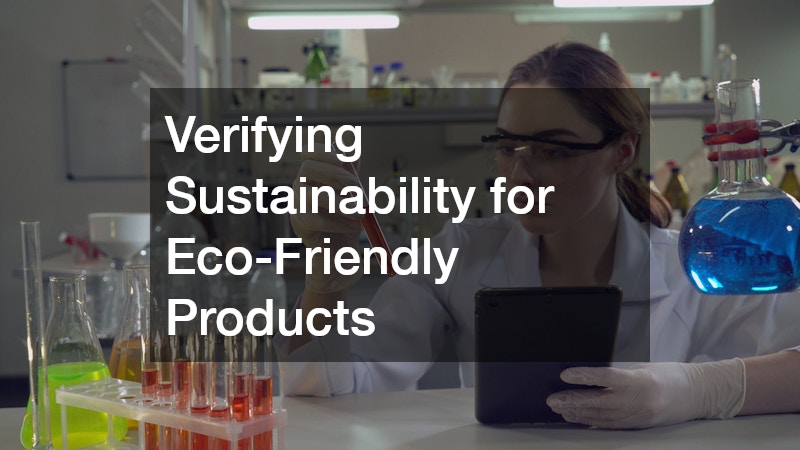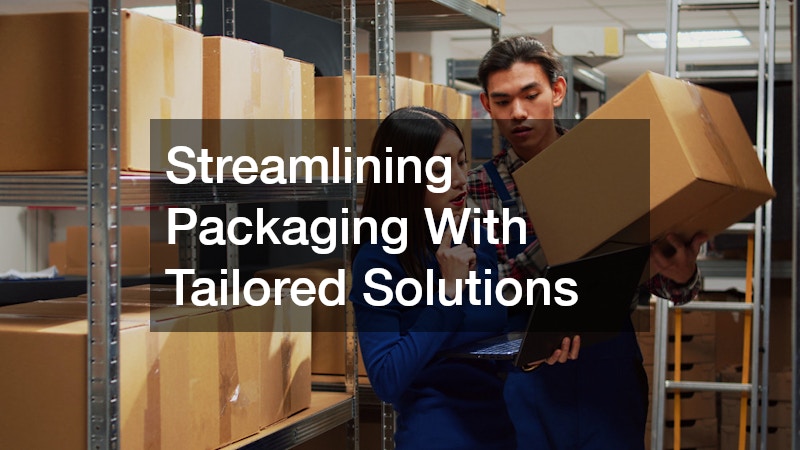Businesses must constantly adapt and innovate to stay ahead of the competition. Implementing a product is not just a process but a cornerstone that dictates the success or failure of new offerings. Explore a selection of innovative tools and services that every business should consider to ensure effective product implementation. Each tool addresses specific challenges, from testing and safety to production and marketing, and can have a significant impact on the success of your product. By understanding how to utilize these resources, businesses can enhance workflow efficiency, minimize errors, and create a product that meets market demands while aligning with operational and environmental objectives.
Simulating Real-World Conditions for Reliable Product Testing
Product implementation begins with rigorous testing that mirrors real-world conditions. This is essential to ensure that products can withstand the various stresses and challenges they will face in the marketplace. Utilizing an environmental chamber rental can be an effective solution, allowing companies to simulate conditions like temperature extremes, humidity, and pressure variations, ensuring that the products perform optimally under all circumstances.
An environmental chamber is designed to create a controlled environment that emulates the conditions a product may experience during its lifecycle. This advanced technology allows product development teams to conduct comprehensive testing, documenting any weaknesses and addressing them before the product reaches the market. Implementing these tests early in the product development phase can save significant time and costs associated with product failures after launch.
Moreover, manufacturers can also leverage these environmental tests to optimize their product designs and materials, resulting in higher durability and increased consumer satisfaction. These reliable testing scenarios facilitate informed decisions regarding product adjustments and enhancements, effectively streamlining the implementation process. By simulating real-world conditions, companies ensure that their products are ready to meet or exceed customer expectations, enhancing their reputation and market share.

Optimizing Resource Use While Reducing Waste
Effective products extend beyond development and testing; they encompass resource management and waste reduction initiatives. A strategic approach to resource allocation not only drives costs down but also aligns with sustainability goals increasingly valued by consumers. Utilizing solvent recyclers in production processes can significantly reduce waste and ensure that materials are recycled efficiently, contributing to a circular economy.
Solvent recyclers are systems that allow businesses to reclaim valuable solvents used in processes such as cleaning and manufacturing. By recycling these solvents, companies can decrease their reliance on fresh resources, reduce hazardous waste, and comply with environmental regulations. This implementation not only enhances sustainability but also lowers operational costs, proving that eco-friendly practices can go hand-in-hand with profitability.
Moreover, adopting comprehensive waste reduction strategies is critical in today’s economy, where stakeholders increasingly demand accountability. Engaging in resource optimization directly impacts the broader manufacturing ecosystem, resulting in better environmental stewardship and corporate responsibility. The relationship between resource management and product implementation is thus a vital consideration for modern companies striving for excellence.
Ensuring Product Quality Through Advanced Filtration Systems
Quality assurance is a fundamental aspect of a successful product, especially for products subject to contamination. Establishing stringent quality controls through advanced filtration technologies is essential in maintaining product integrity and safety. These purification technologies can eliminate impurities and contaminants, ensuring that the final products delivered to consumers meet the highest standards of excellence.
Implementing effective filtration systems in production can significantly impact the quality of materials used, thereby enhancing the overall product performance. Advanced filtration can lead to the creation of safer and more reliable products, fostering consumer trust and loyalty. Additionally, these systems can improve the efficiency of manufacturing processes, providing better yields and reducing rework costs due to contamination issues.
Through rigorous application of these advanced purification technologies, companies can fortify their market position by consistently delivering high-quality products. As quality directly correlates with customer satisfaction, it becomes a crucial component of the product implementation strategy. The commitment to utilizing state-of-the-art filtration systems reflects a dedication to quality and reliability that resonates strongly with both consumers and industry partners.

Verifying Sustainability for Eco-Friendly Products
In an increasingly environmentally-conscious market, verifying sustainability is paramount. Companies must adopt rigorous standards to assess the environmental impact of their products, focusing on elements like biodegradability and material sourcing. Implementing biodegradation tests ensures that products can safely break down after use, minimizing landfill contributions and promoting a healthier planet.
Biodegradation testing involves assessing how organic materials decompose in natural environments, providing valuable insights into the lifecycle of a product. It is crucial for companies looking to market eco-friendly products, as demonstrating a product’s ability to return to nature can boost consumer confidence. By prioritizing sustainability through these tests, companies not only address growing consumer demand but also align with regulatory expectations, which increasingly emphasize eco-conscious practices.
Additionally, integrating sustainable practices into product implementation offers competitive advantages that can differentiate a brand in the marketplace. As consumers become more educated about their choices, they gravitate toward brands that actively demonstrate responsibility and sustainability. Thus, implementing comprehensive sustainability verification measures is a strategic move towards securing long-term success and customer loyalty.
Protecting Assets With Smart Safety Solutions
Another critical aspect of an effective product rollout is ensuring the safety of both the product and the people handling it. This involves using advanced technology to minimize risks and safeguard assets. Fire suppression software, for instance, can strategically monitor environments and trigger safety protocols to prevent fire hazards during production and storage.
Implementing fire suppression systems as part of the product implementation strategy ensures that facilities are prepared for emergencies, protecting valuable resources and personnel. These systems provide rapid responses to potential threats, greatly reducing the damage associated with fire incidents. Consequently, investing in smart safety solutions reflects a company’s commitment to security and employee well-being.
Not only does this enhance the reputation of a brand, but it also fosters confidence among stakeholders, including customers, employees, and investors. By prioritizing safety in every step of the implementation process, companies create a resilient operational environment. This commitment ultimately bolsters productivity and drives growth by minimizing disruptions and ensuring seamless operations.

Designing Precise Components for Efficient Production
Precision in manufacturing is integral to successful implementation, particularly in creating components that function effectively together. Employing advanced design techniques, such as those used by a plastic preform designer, ensures that every component meets the required specifications. This meticulous approach leads to enhanced product performance and lowers the risk of issues arising from component failure.
Through the intricate design of components, manufacturers can optimize production efficiency while aligning with overall product goals. The integration of precise designs contributes to improved assembly processes, reduces material waste, and enhances overall product quality. Therefore, the role of innovative design strategies cannot be overstated in the context of effective product implementation.
Moreover, the continuous evolution of design tools and technologies enables companies to further refine their processes. By investing in precision design capabilities, manufacturers position themselves to innovate effectively, adapt to market demands, and ultimately drive growth. Emphasizing precise component design is not merely a technical endeavor but a strategic imperative in the successful implementation of any product.
Automating Production for Greater Speed and Accuracy
Automation in manufacturing is revolutionizing how product implementation occurs, enhancing speed and accuracy across production lines. Robotics and artificial intelligence have stepped into play, particularly through services offering robotic fabrication capabilities. By implementing these technologies, companies can achieve higher efficiency levels, greatly reducing production times and minimizing human error.
The advantages of robotic fabrication services extend beyond mere speed; they offer exceptional accuracy and consistency that is often unattainable through human labor alone. This precision ensures that each product manufactured meets stringent quality standards, thereby enhancing consumer satisfaction and reducing return rates. Automation also allows for scalable production, meaning companies can adjust their output based on market demand without sacrificing quality.
Furthermore, adopting automation strategies can significantly reduce labor costs and optimize resource allocation across manufacturing processes. As companies look to streamline their operations and improve their implementation strategies, integrating robotic solutions becomes not just beneficial but necessary to maintain a competitive edge. Ultimately, automation is a critical investment that sets the stage for future growth and innovation.

Streamlining Packaging With Tailored Solutions
Once products are manufactured, the next step in effective product implementation is packaging. Streamlined packaging processes can ensure that products are delivered efficiently and securely to customers. Utilizing custom box making machines allows companies to create tailored packaging solutions that perfectly fit their products, minimizing waste and enhancing unboxing experiences for consumers.
Through the use of custom box making machines, businesses can significantly reduce material costs and improve shipping logistics. This innovation promotes resource efficiency by minimizing excess packaging materials while still ensuring product safety during transit. The strategic implementation of customized packaging relates directly to brand identity and the overall consumer experience, making it an essential component of implementing a product.
Moreover, optimizing packaging not only strengthens the product presentation but can also improve inventory management and shelf space utilization. As consumers place increasing value on aesthetics and functionality, tailored packaging becomes a competitive factor that can influence purchasing decisions. Hence, investing in innovative packaging solutions is fundamental to the successful implementation of products in today’s market.
Managing Inventory to Reduce Delays and Costs
Effective inventory management is a cornerstone of successful product implementation, impacting almost every facet of production and distribution. By leveraging material requirement software, companies can optimize inventory levels and prevent delays that could hinder product availability. This software provides real-time data on material usage and demand forecasts, allowing businesses to make informed decisions regarding their supply chain.
A systematic approach to managing inventory helps to maintain a balance between supply and demand, reducing holding costs and minimizing waste. With improved visibility of inventory levels, companies can strategize their purchasing decisions, ensuring they have the required materials on hand without overstocking. This agility in operations ultimately leads to a seamless implementation experience.
Furthermore, effective inventory management contributes to overall operational efficiency and customer satisfaction. Quick turnaround times and the ability to meet customer demand without delay enhance a company’s reputation and profitability. Therefore, embedding material requirement software into operational practices is vital for businesses aiming to streamline their product rollout processes.
Amplifying Product Launches With Targeted Strategies
The final step in product implementation involves launching products into the market effectively. A strong marketing strategy, often bolstered by collaboration with a digital marketing agency, can amplify the visibility and reach of newly launched products. Utilizing digital platforms for promotions and advertising helps to ensure that potential customers are aware of the product and its value proposition.
By leveraging targeted online marketing strategies, businesses can reach their ideal customer profiles and create meaningful engagements. Digital marketing agencies have access to tools and analytics that provide insights into consumer behavior, enabling brands to craft tailored messages that resonate with their audience. A well-executed launch strategy not only increases sales but builds brand loyalty from the outset.
Additionally, a partnership with a digital marketing agency can enhance the overall success of your product by integrating various promotional channels like social media, email marketing, and influencer collaborations. As the digital landscape continues to evolve, having expert guidance in these areas becomes indispensable for brands seeking to establish a strong presence in the competitive market. By utilizing targeted marketing strategies, companies can significantly increase the impact of their product launches and achieve sustained success.
Effectively implementing a product encompasses various strategies aimed at ensuring quality, sustainability, and efficiency. From simulating real-world conditions through environmental chamber rentals to leveraging automated processes for production, each aspect contributes to a cohesive strategy that drives success. By prioritizing resource optimization, advanced technology, and targeted marketing, businesses can enhance their operations and ensure that their products are ready to meet market demands.
The emphasis on sustainability, safety, and precision is becoming more critical than ever as consumer expectations continue to evolve. Companies that commit to these principles in their implementation strategies will likely find themselves at a competitive advantage. As we move further into this digital and environmentally-conscious age, the ability to adapt and innovate in product implementation will be the defining factor in long-term success.
By focusing on collaborative efforts across departments—ranging from design and engineering to marketing and distribution—businesses can streamline their processes and deliver products that surpass consumer expectations. The journey of a product from conception to launch is intricate; however, the right strategies can transform this process into one of inspiration and achievement. The investment in effective product rollout strategies is not merely advisable but imperative for any business aiming to thrive in today’s fast-paced market.



